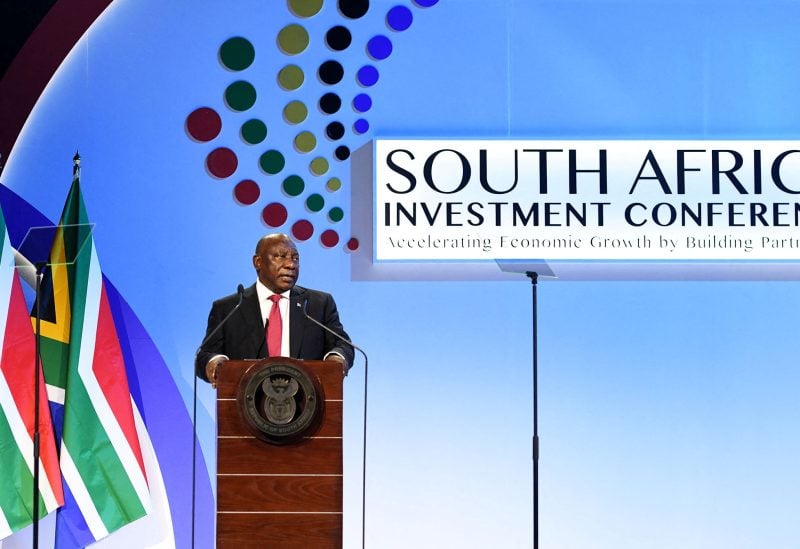
South Africa's President Cyril Ramaphosa looks on as he delivers the opening address at the 5th Investment Conference to showcase opportunities available in the country to local and international companies, in Sandton, South Africa, April 13, 2023. Jairus Mmutle/Government Communication Information System (GCIS)/Handout via REUTERS THIS IMAGE HAS BEEN SUPPLIED BY A THIRD PARTY. MANDATORY CREDIT.
As President Cyril Ramaphosa wants 2 trillion rand ($111 billion) in new investments over the next five years, executives said on Thursday that South Africa must rapidly address its energy, transport, and security concerns if it is to reverse deteriorating investor sentiment.
Speaking at the South African Investment Conference in Johannesburg, which Ramaphosa started in 2018 to improve the continent’s most developed but faltering economy’s economic activity, were executives.
Mismanagement and corruption at state-owned companies, including power utility Eskom and freight logistics group Transnet, have had a knock-on effect on ports and road transport, hitting efficiency and dampening investor appetite.
“We are confronted with the consequences of years of underinvestment, mismanagement and corruption in the electricity and rail sectors,” Ramaphosa told attendees, promising to work
with the private sector to remove investment stumbling blocks.
“As I announced in the State of the Nation address in February, we are now setting a new target to mobilise approximately 2 trillion rand in new investments over another five-year period,” the president said.
Emrie Brown, chief executive of financial services holding company Rand Merchant Bank, told attendees the firm’s clients were concerned about the rising cost of production as a result of challenges in the country.
“The way we see it for the future of South Africa, international investment is so important and these challenges make it difficult for us to position the potential of South Africa as an attractive investment destination while there is uncertainty on when reforms will be implemented,” Brown said.
Anglo American CEO Duncan Wanblad said: “There are a few quick wins that we need to achieve to be able to change and turn that negative investor sentiment around.”
South Africa has experienced its worst power cuts on record, leaving businesses and households in the dark for up to 10 hours daily. The South African Reserve Bank estimates these blackouts have shaved off at least 2 percentage points from growth.
Ramaphosa will be looking to make good on his government’s reform promises as he gears up to be elected for a second term as president in next year’s national elections.